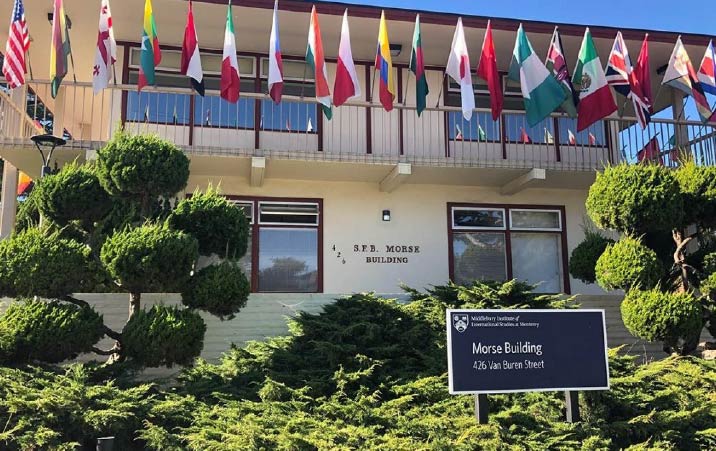A 21st century policy school has to offer students opportunities related to cybersecurity,” Bleek says. “The topic is important in its own right and also as it intersects with topics like terrorism, nonproliferation, and financial crime, and others.”
Dr. Bleek is an international security generalist with a focus on the causes, consequences, and amelioration of chemical, biological, radiological, and nuclear (CBRN) weapons threats. He is interested in the cyber and digital domains as they relate to these threats, and more broadly, and has coached Middlebury Institute student teams at the Atlantic Council’s annual Cyber 9/12 competition in Washington, DC multiple times.
The topic is important in its own right and also as it intersects with topics like terrorism, nonproliferation, and financial crime, and others.
The Cyber Collective is supported by graduate assistant Elle Zesky. She is a second semester NPTS student and a 2020 Graduate from Mercyhurst University where she studied intelligence with a focus in cyber security, as well as Russian studies. Elle has worked in various fields involving cyber-crime and cyber enabled crimes such as financial crime and human trafficking. She is also co-coaching the 2021 Cyber 9/12 team. Zesky is passionate about accessible cyber education, data protections and protecting vulnerable populations online.
During the spring 2021 semester, the Cyber Collaborative is hosting its first visiting fellow, Polish scholar Robert Siudak. Supported by a Fulbright Fellowship, he is teaching an inter-disciplinary course on cybersecurity, coaching this year’s student team for the Cyber 9/12 competition, as well as engaging with students, staff, and faculty, and conducting research.
Various faculty and staff are affiliated with the effort. The robust cyber and digital-related activities of the Institute’s Center on Terrorism, Extremism, and Counterterrorism have led to a natural connection between faculty and staff. In addition, the Cyber Collaborative works closely with Professor Moyara Ruehsen, whose Financial Crime Management Program engages directly with cyber related issues. Scientist-in-Residence George Moore provides a link to the James Martin Center for Nonproliferation Studies. Moore’s professional background includes helping keep nuclear reactors safe from cyber attacks while working at the International Atomic Energy Agency.
Cybersecurity is a logical corollary to the issues we focus on in the Nonproliferation and Terrorism Studies (NPTS) program.
Bleek and Zesky are very excited about the opportunities this new venture offers for increased collaboration across degree programs in the field of cyber security. They have already co-hosted events with the Financial Crime Management specialization and the Middlebury College Center for Careers and Internships, and recently hosted a webinar with Geoff Brown, the Chief Information Security Officer and Head of Cyber Command for New York City, and a Middlebury College alum (recording available soon).
“Cybersecurity is a logical corollary to the issues we focus on in the Nonproliferation and Terrorism Studies (NPTS) program,” says Program Chair Jeffrey Knopf. “Having a Cyber Collaborative under the direction of NPTS Professor Philipp Bleek provides a variety of benefits to our students and to other members of the MIIS faculty. It has already proved its value as a vehicle for inviting outside speakers and hosting visiting scholars who can share their expertise with the MIIS community.”








